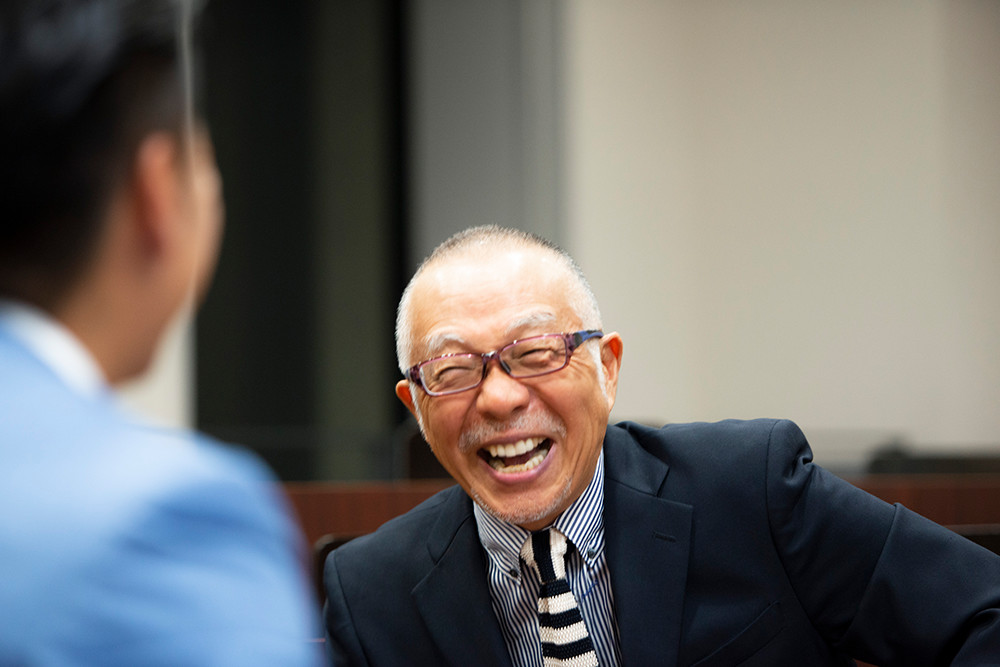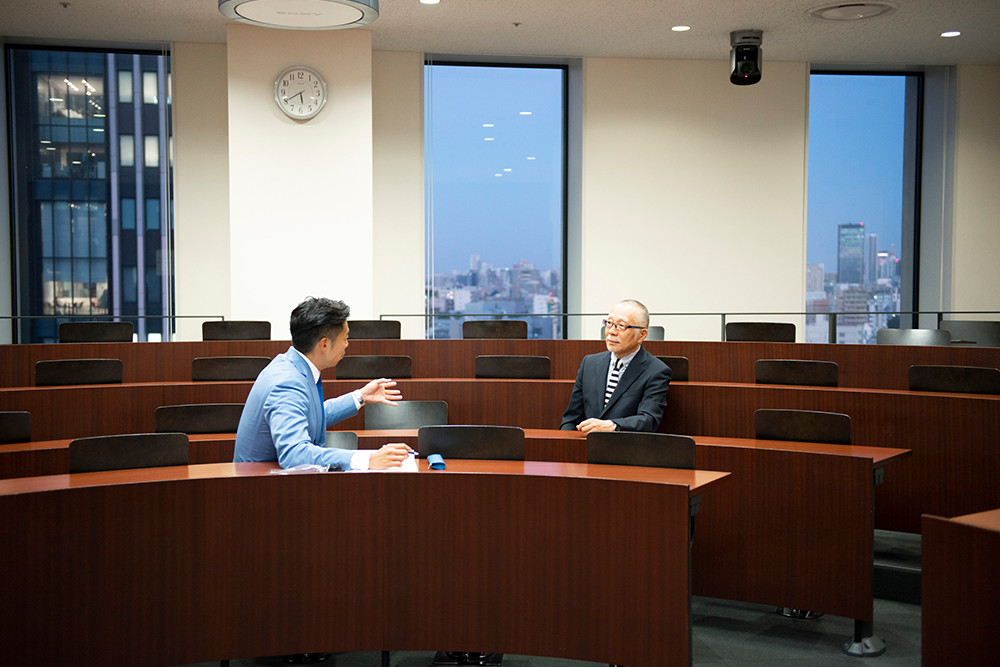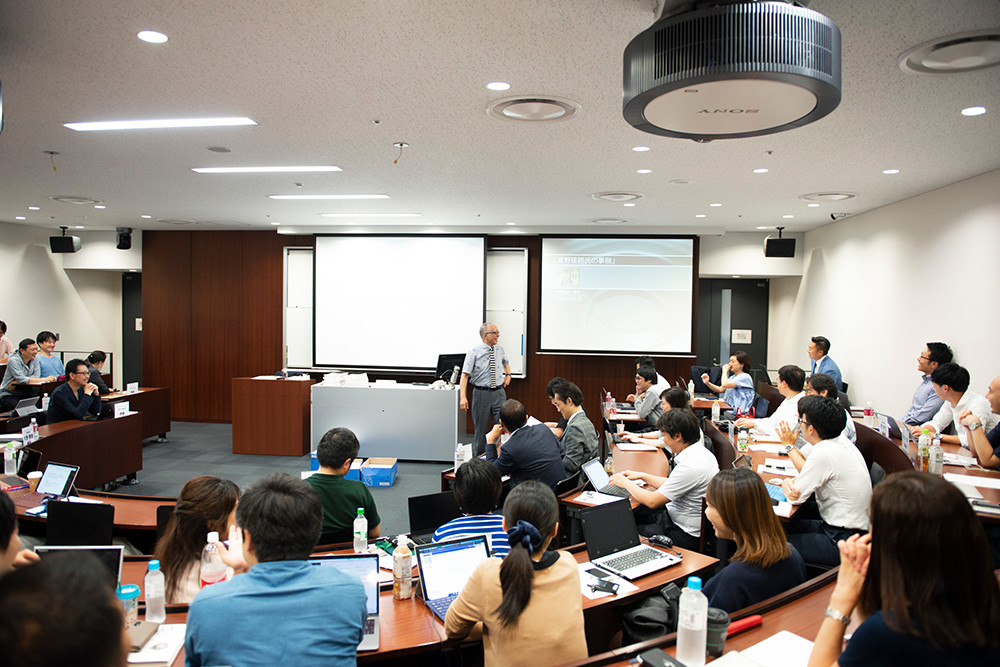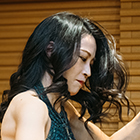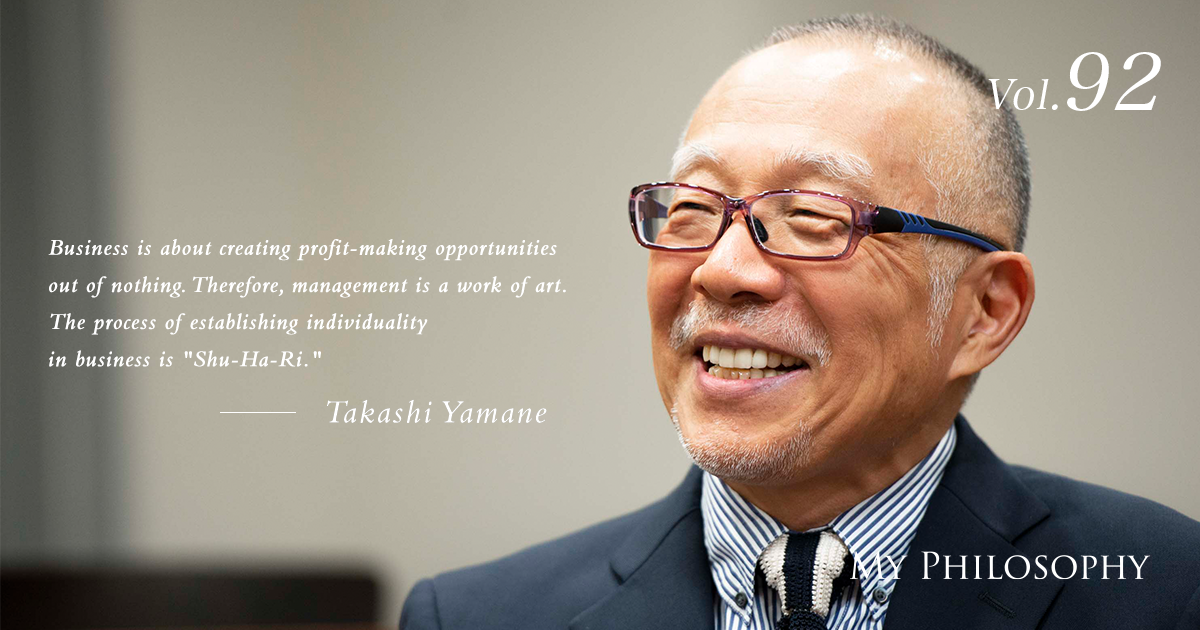
Professor Takashi Yamane always asks, "What would I do?" He believes that strategy is essential in management and is dedicated to nurturing true business professionals. Considering teaching his calling, we had the opportunity to hear from Professor Yamane on what he believes business and management entail.
Profile
Vol.92 Takashi Yamane
Management Scholar | Certified Public Accountant | Professor at Waseda University Graduate School of Business and Finance (WBS) | Emeritus Professor at Keio University
Born in Tokyo in 1949, he graduated from the Department of Political Science at Waseda University's School of Political Science and Economics. After completing his Master's degree in Business Administration (MBA) at the Graduate School of Business and Finance (KBS) of Keio University, he founded a consulting firm and served as its CEO. He completed his Doctorate in Commerce (Ph.D. in Commerce) at the Graduate School of Business and Commerce at Keio University. at Keio University. In 1994, he became an Assistant Professor at KBS and was a Visiting Scholar at Stanford University in the United States, before being appointed as a Professor in 2001. He has held his current position since April 2014. In 2018, he received the Waseda University Teaching Award Grand Prize. He serves as a member of the RJC Car of the Year Selection Committee and as an external director and auditor for listed companies.
His main publications include "Why Those Managers Are Amazing - Understanding Top Management Skills Through Figures (Naze ano Keieisha wa Sugoi noka – Suji de Yomitoku Top no Shuwan)" (Diamond, Inc.), "Business Accounting - Understanding Management through Financial Statements (Business Accounting – Suji de Yomitoku Top no Shuwan)" (co-authored, Chuokeizai Sha Holdings, Inc.), "Financial Statements of Profitable Companies: 48 Real-Life Examples to Learn Management and Accounting Skills (Mokaru Kaisha no Zaimushohyo 48 no Jitsurei de Mini Tsuku Keieiryoku, Kaikeiryoku)" (Kobunsha Shinsho), "MBA Executives - Comprehensive Strength in Strategy, Management Control, and Accounting" (Chuo Keizai Sha Chuokeizai Sha Holdings, Inc.), among many others.
Lessons Only a Scholar with Experience as a President Can Teac
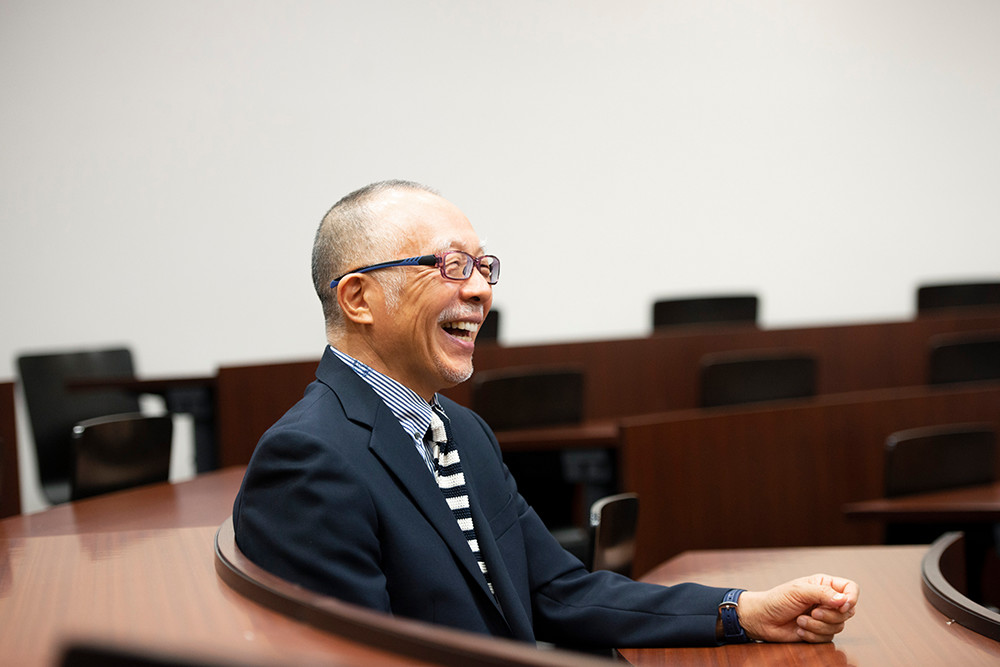
I studied at KBS (Keio Business School, officially the Graduate School of Business Administration at Keio University), and upon completion, I founded a consulting company and served as its president for 13 years. With a newborn son to care for and having taken leave from work to attend KBS, money was tight, and we often struggled to make ends meet. The future of my family was at stake, so I dedicated myself to my studies, ultimately graduating at the top of my class. However, when I became a manager and tried to apply what I had learned, I realized that management theories could not always be directly applied. What proved invaluable was the experience of putting myself in the scenarios of the case studies (corporate examples) discussed at KBS, thinking critically, and coming up with my own solutions.
In the real world of management, problems arise daily. I faced complaints from clients and was severely questioned by employees asking, “Are you a reliable person we can follow?” Training to find my own answers through case studies was incredibly useful in those situations. It helped me develop a steadfast personal philosophy.
Before starting to teach at KBS, I had 20 years of practical experience, making me a scholar with a background in practice. Having experienced both realms, I’ve realized that academia and the practical world often do not mix well. To put it simply, the relationship between “management scholars” and “managers” is similar to that between “art critics” and “artists”. While art critics can explain paintings analytically and logically, they cannot paint. Conversely, artists can create beautiful works but lack the logical language to explain their creations. They are, in a way, like oil and water (laughs).
Similarly, scholars cannot manage. However, many managers, despite having successful experiences, cannot teach others because they lack the language to make their experiences understandable. Scholars, on the other hand, study and formulate words and theories to make successful management replicable and comprehensible to students. If we could combine the strengths of both, just as art schools nurture painters and sculptors, business schools could nurture managers. Having experienced both roles, I believe I can contribute to the development of management talent.
Many believe that “managers = rationality,” but that’s not entirely true. Management is filled with “intuition” and “values,” making it profoundly human. The conglomerate of ideals, values, and norms that a company holds is known as its “management philosophy,” and this philosophy is the axis of a manager. Without this axis, management is impossible. To develop an unwavering axis, I always encourage students to consider what they want to do and what kind of company they want to create. Management decisions vary from person to person, and there might not be a single correct answer, or there might be multiple plausible answers. Business schools are not about teaching the right answers but about providing a place for students to solidify their own management philosophies.
Creativity is Essential in Business
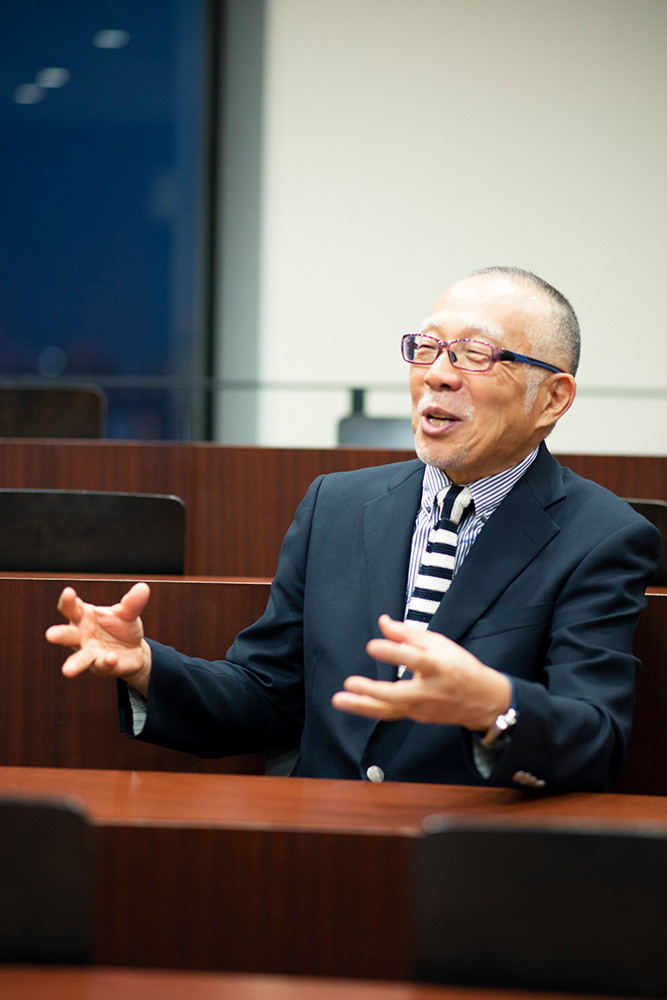
Business schools are often thought of as places to learn the latest management theories, but theories are just imperfect tools. The real purpose is to train students to develop their own thoughts. Those who graduate remembering only theories and not this fundamental purpose might become what I jokingly refer to as “pseudo-MBAs.” Henry Mintzberg, an author I admire, has written a book titled “Managers Not MBAs,” in which he sounds the alarm about such MBAs. He says, “Management is an appropriate blend of science, craft, and art.”
“Science” refers to analysis and logic, which can be learned. “Craft” is about the experience. The situations that arise in the business field are not crude enough to be handled with the simple theories learned in school, necessitating more nuanced experiences.
While these usually require actual practice, virtual experience can also be gained through case studies (the case method). Finally, “art” refers to creativity or design ability. Business is about creating profit-making opportunities out of nothing. It’s about crafting something that people will happily pay for, much like writing a novel or painting a picture. That’s why I say “management is a work of art.” While art may often be thought of as intuition or a sudden inspiration, it actually involves using a rich imagination to create creative works. Indeed, business schools can be a place to hone creativity. Through discussing case studies to explore “What would you do differently?” and developing new business plans, students create works akin to art school projects. In doing so, they critique and stimulate each other, fostering a competitive yet collaborative environment for growth.
To refine business, embrace “Shu-Ha-Ri”
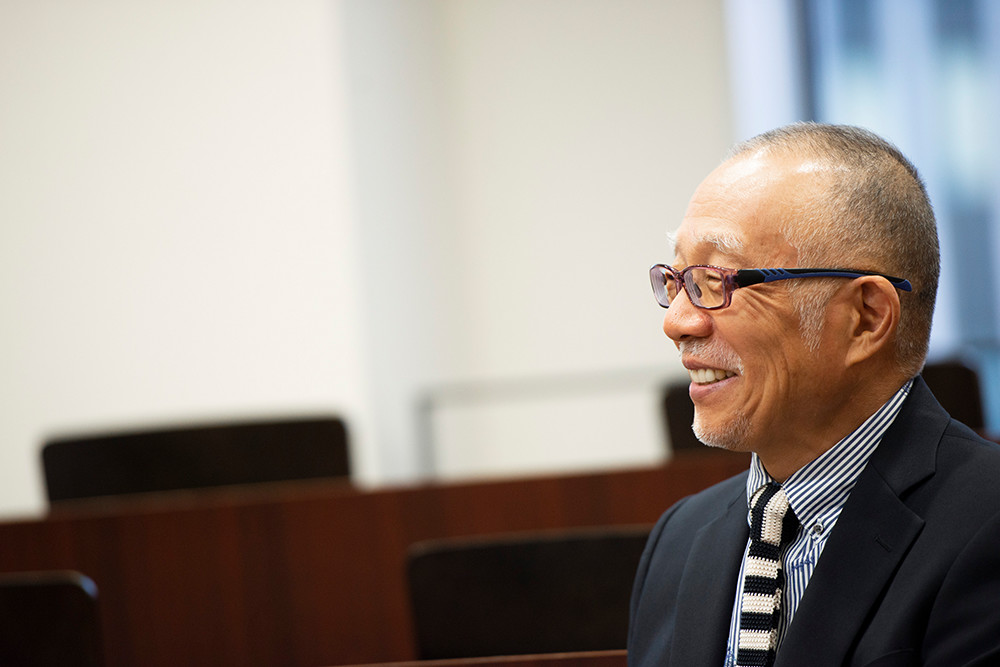
I’ve long pursued Noh theater and the tea ceremony as hobbies. Zeami, who established the path of Noh, and Sen no Rikyu, who did the same for the tea ceremony, both spoke of “Shu-Ha-Ri” as the essence of training.
“Shu” involves meticulously copying the master, thoroughly mastering the form. In Japanese arts, there’s always a “kata” or form, which one must initially learn. Those who master the basic form and then go on to express their individuality are considered innovative, while those who express individuality without mastering the form are seen as lacking discipline. Learning through forms facilitates faster acquisition of skills. Moreover, having a solid foundation in these forms allows one to recover from slumps by returning to the basics.
After adopting the forms of one’s school, “Ha” involves learning broadly from other schools and various genres. Through this process, one establishes their own style or individuality, known as “Ri”.
Business follows a similar path. The minimum experience gained on the job (Craft) and the Science learned in business school represent the basic “form” that must be quickly and firmly acquired.
Beyond this, “Ha” in business is not just about accumulating trial and error experiences but also necessitates a broad insight into various fields outside of business. This includes the liberal arts and general education, encompassing politics, economics, history, philosophy, literature, theater, movies, and experiences with different cultures – essentially, “fertilizer” for the arts. Without sufficient “fertilizer”, one cannot propose products or services filled with surprising elements that lead consumers. It’s through these experiences that one’s personal business style – “Ri” – begins to take shape.
Lately, observing our alumni, I’ve been contemplating what differentiates those who thrive after graduation from those who seem to miss the mark, even though both had decent grades in business school. I’ve concluded that it might be a lack of “culture”. Furthermore, the deficiency in “fertilizer” and an unawareness of this lack in oneself became apparent.
Post-30, life gets busy, and suddenly, “I don’t read novels, go to attend movies or concerts, travel, or experience awe – just drink” becomes the norm (laughs). This approach won’t do. One must continually nourish oneself. Okuma Shigenobu said, “Learning is a lifetime’s work.” Fukuzawa Yukichi stated, ” The difference between wise and stupid depends on if the one learns or not. ” The pursuit of learning is lifelong.
Life Ahead, The Challenges Continue
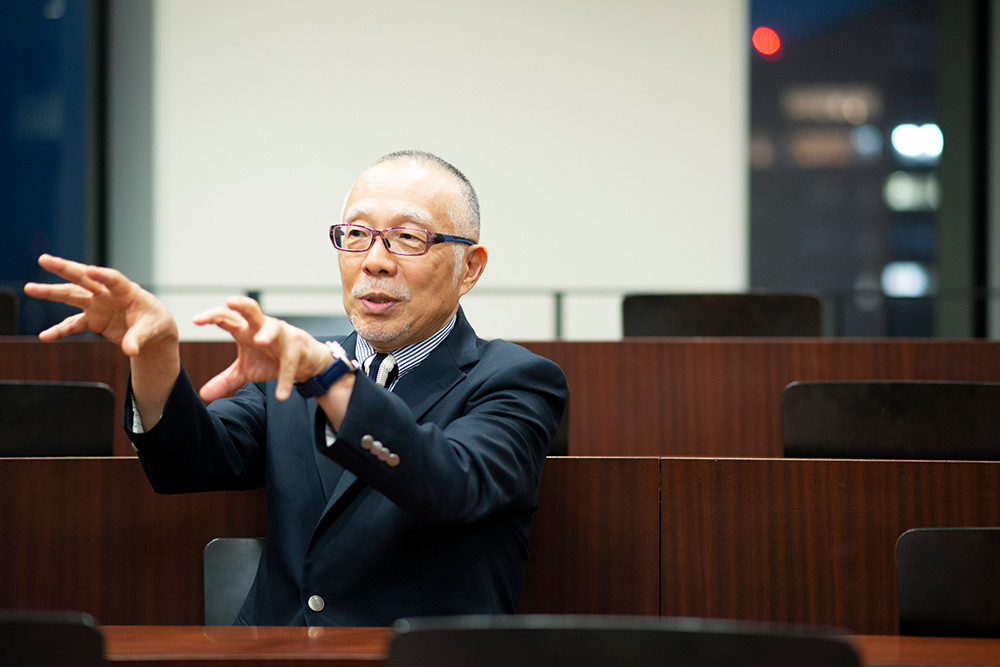
After retiring from KBS (Keio Business School) at the age of 65, I moved to WBS (Waseda University Graduate School of Business and Finance), both of which are among the top business schools in Japan. Comparing the two, I find their school cultures to be entirely different. Keio was founded by the thinker Fukuzawa Yukichi, while Waseda was established by the politician Okuma Shigenobu, naturally leading to differences in content and teaching methods. However, interacting with students from both schools, I realize that they all enter with dreams and hopes, sharing the same fervor. It’s truly fascinating to listen to and discuss with the youth. Yet, I’ve noticed many who possess great potential but seem to stand still.
There’s a saying by Sun Tzu, “If you know the enemy and know yourself, you need not fear the result of a hundred battles,” but it’s surprisingly difficult to see oneself clearly. I find myself offering a bit of advice and gently pushing those who cannot move forward without knowing themselves. Then, they start to move forward, filled with hope and expanding dreams. As a teacher, joining in the dreams of the young and dreaming together, I indeed feel that teaching is my true calling.
To the Business Breakthrough Graduate School
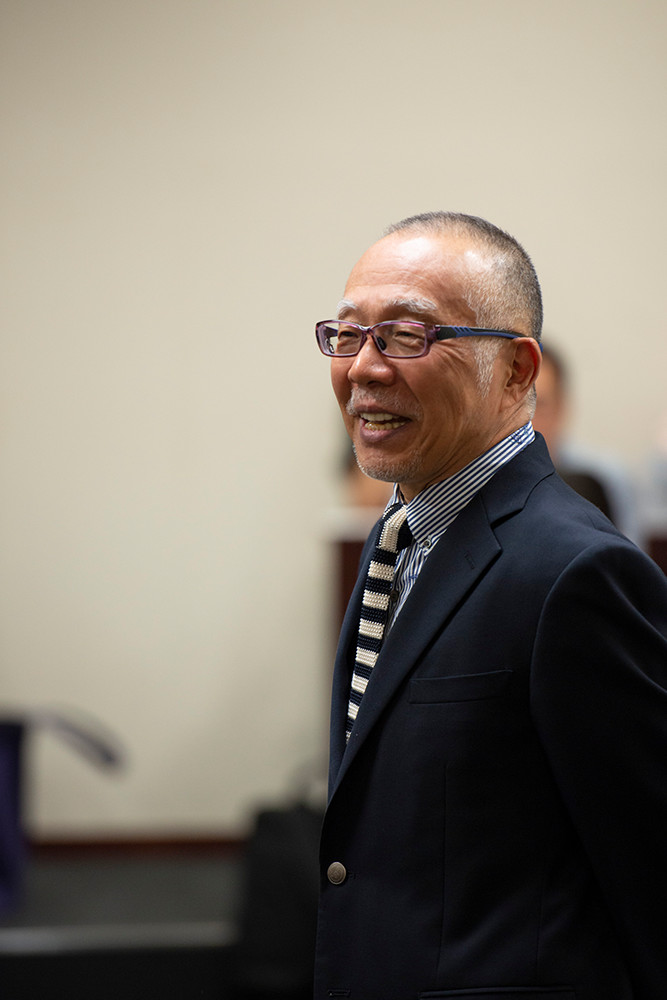
I will retire from WBS (Waseda University Graduate School of Business and Finance) in March 2019, at the age of 70, but have been invited by Mr. Kenichi Ohmae, who is the president of the Business Breakthrough Graduate School (located in Chiyoda, Tokyo), to join their faculty. Starting in April, I will be active in this internet-based graduate school of management. Throughout my life, when faced with choosing my path, I have always opted not for the easy route but for the one that seemed more challenging and exciting.
Let me share a story from my youth. During my college years, I traveled to the Goto Islands in Kyushu, where I fell in love at first sight with a wonderful woman (laughs). She was so incredible that I desperately wanted to marry her. At that time, I had already secured a job at a shipping company. I realized that if I worked there, I wouldn’t be able to see her, so I started looking for another job that wouldn’t restrict my location. I turned down the job offer without even having passed the exams and decided to become a certified public accountant. After all my hard work, I succeeded and she became my wife (laughs).
If I had chosen to be a salaried employee, perhaps my life would have been stable for a while. But life is unpredictable and full of challenges, which I find overwhelmingly more interesting. After retiring from WBS, I could have considered various paths, but the new challenge of focusing on internet-based management education excites me. There’s no mandatory retirement age there, so I can keep challenging myself as long as I’m physically able. I look forward to learning with and from the youth, sharing their dreams, and supporting them.
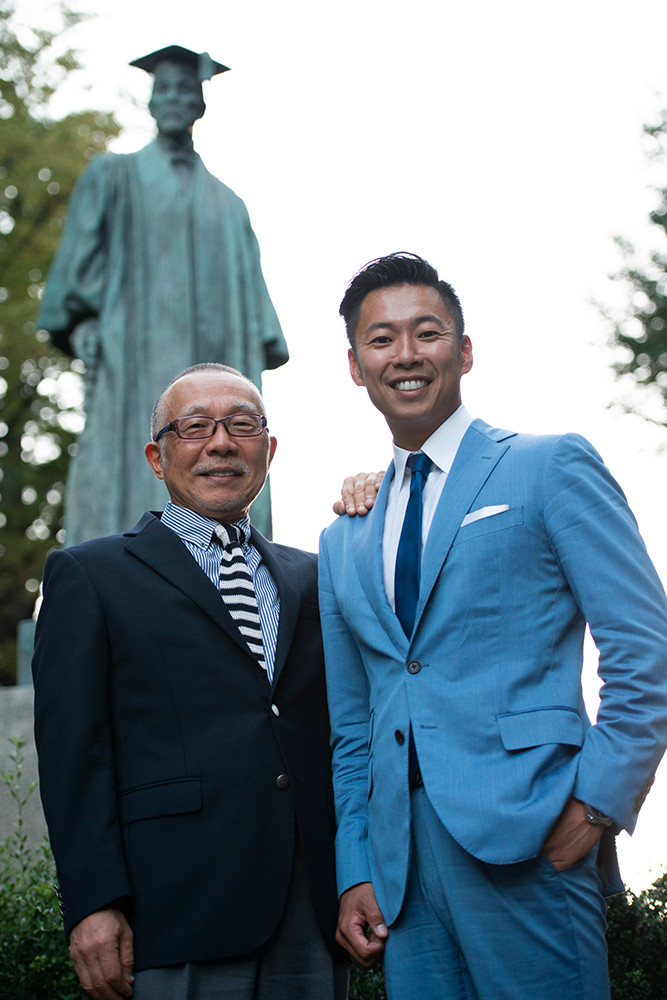
DK Sugiyama was one of my seminar students at KBS. When I first met him, I thought he was rather aggressive, or perhaps impudent, and somehow too intense. He often failed to match the pace or mood of those around him, always sticking out… (laughs).
But I had a gut feeling that “This guy is going to make something of himself!” and I’ve supported him since. The future I envisioned for Sugiyama back then was far bigger and grander than where he is now. If I were to send a message to Sugiyama today, it might go something like this: “Don’t be satisfied with where you are. The Sugiyama I want to see is on a completely different level from where you are now. Life is once, climb to the highest peak you can reach! Embrace more ‘Ha,’ and then advance to ‘Ri’!!”
Management Scholar, Certified Public Accountant, Professor at Waseda University Graduate School of Business and Finance (WBS), Emeritus Professor at Keio University – Takashi Yamane
Professor Takashi Yamane and I have known each other for over 20 years. When we first met, he said to me, “Sugiyama, running a company is fascinating. There’s no ceiling. Being a president is tough but exciting! After you graduate from SFC, you should come straight to Keio’s business school!” The two years I spent at the business school as a fresh graduate were immensely valuable to my later life as a professional and as a business leader. Since my student days, I’ve “stolen” many business skills from the professor, including maintaining a positive attitude, preparing to seize opportunities, and building a network for moving to the next stage.
After the interview, I had the chance to sit in on one of the professor’s classes for the first time in a while. With his practical experience, the content was compelling and convincing. “Sugiyama, you’ve been lacking hunger recently. You need to be hungrier!” Yes! I’ll change gears and accelerate!
October 2018, at Waseda University Graduate School of Business and Finance (WBS) – Writer:Cana Photographer: Atsushi Aragane





